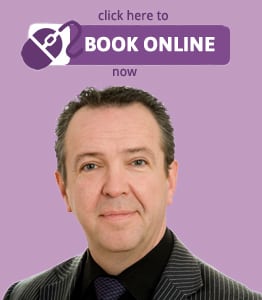Loving Yourself Part 3
CONDITIONS TREATED
ABOUT THERAPY
Self Love Continued...
In part 1, we took a look at what self-love actually is, and what it involves.
In part 2, we looked at a simpler definition and continued to examine self-care.
Now in this third and final part, we will look at whether self-love alone, is enough? And what happens if someone loves themselves “too much”?

Is just Loving yourself enough?
Let’s take first things first.
The way that we develop self-esteem and self-love, as a child, is through something called mirror-nueroning.
When we are born and have no sense of self or separation, who and what we are in the world, is laid down in our psyche, from the reactions and particularly the facial expressions of our caregivers, during their interactions with us.
Our mother’s smiles are the most important of all. Caregivers, particularly mothers, who look at us and smile with pleasure, love and adoration, teach us we have a value in the world.
Sadly, not all children receive these reactions, at least not as often as necessary. Mothers and caregivers who are addicts, suffering from depression or other mental health issues are simply unable to do this. Often they are struggling to care for themselves and/or make it through the day, never mind being capable of meeting the needs of a baby. This often results in the child developing feelings of worthlessness and inadequacy, which in turn, is likely to lead to having insufficient (or even non-existent) boundaries and standards in future relationships.
The love doctors and gurus will tell you that if you just learn to love yourself, then the whole world will come right, you will find the perfect partner and live happily ever after…. Excrement in my view and experience!
For one thing, how? When a child has experienced no or very limited mirror-nueroning, how would this even be possible?? The “gurus” suggest that positive affirmations (talking to yourself in the mirror) will fix it. Sorry but I disagree!
I am not saying that positive affirmations are a bad thing but mirror-nueroning is largely impossible in the way that the gurus suggest. Our own reflection, as an adult, is instantly recognisable as “self” and therefore affirmations in a mirror, are largely ineffective.
I am not saying that it is not important or a positive step, but it is a grave mistake to assume such exercises can “fix” everything.
So what can you do if we have not had adequate mirror nueroning in childhood? Certainly, parts 1 and 2 of this article will give you a start point but In essence it is about growth and healing.
Growing Versus Healing
To be happy in life, we must develop self-love and that is part and parcel of growing and healing.
Parts of ourselves that did not receive what we needed in childhood remain under-developed. In many cases, we may even have parts of ourselves which were traumatised.
Furthermore, we will always try to get what we did not get in childhood from our adult relationships and usually from the people, least able, to provide it.
As Harville Hendrix puts it so well, it is our responsibility, indeed our mandate to grow ourselves (on our own) but we can only ever “heal” in relationships (not necessarily just romantic relationships although they do often provide the best arena).
And in order to find healing relationships, WE MUST GROW.
How do we grow – it is all about finding balance and avoiding extremes! ACCEPTING our Humanness (as described in part 2 of this article).
Early in childhood, we develop a complex template based on the positive AND negative character traits of our primary caregivers. This template is called our Imago. It will govern who we are attracted to and who we fall in love with for the rest of our lives. It cannot be changed but it can be mutated. We can knock off the edges and corners (through our own self-growth) to the point where, although the people we gravitate towards in the future, will almost certainly have the same traits as our ex-partners (and early caregivers), they will be present at much less extreme levels. Then a workable, healing, relationship becomes possible.
If you require further help or information, book an initial assessment consultation here, just be sure to enter coupon code INITIALAC to enjoy the 50% discount.
What happens if love yourself too much?
Many of my patients, who need to learn to love themselves, worry about this question. What if I start to love myself too much? I don’t want to turn into that sort of person.
The answer to this, as in many things, lies in a paradox.
Let us begin by considering what we mean by someone who loves themselves too much? Usually, we think of someone arrogant, pompous, always “holding court”/needing to be the centre of attention or even those individuals who may qualify as narcissistic.
However, these types of people only behave like that because they most definitely do NOT love themselves, at all! (in the ways we have discussed) (see parts 1 and 2), Their behaviour is simply overcompensation! Anyone who has developed some true degree of self-love and confidence would never behave in such ways; they simply do not need to. So the paradox is that developing some true self-love if anything, protects us from ever acting in such ways.
Recommended Further Reading
Keeping The Love You Find by Harville Hendrix
Jung In a Week by Ruth Snowden
SHARE US
JOIN US
Copyright © 1994 – 2018 T. Roberts, Dolphin Hypnotherapy Bournemouth and Poole, Dorset. All rights reserved. – Areas we cover include, but are not limited to, the following towns and villages throughout Dorset, Hampshire and Wiltshire – Bournemouth, Boscombe, Southbourne, Poole, Parkstone, Branksome, Sandbanks, Westbourne, Ferndown , Christchurch, Highcliffe, New Milton, Lyndhurst, Lymington, Swanage, Studland, Wareham, Blandford, Sturminster Newton, Shaftesbury, Dorchester, Weymouth, Bridport, Merley, Wimborne, Broadstone, Corfe Mullen, Fordingbridge, Verwood, Ringwood and Salisbury.

